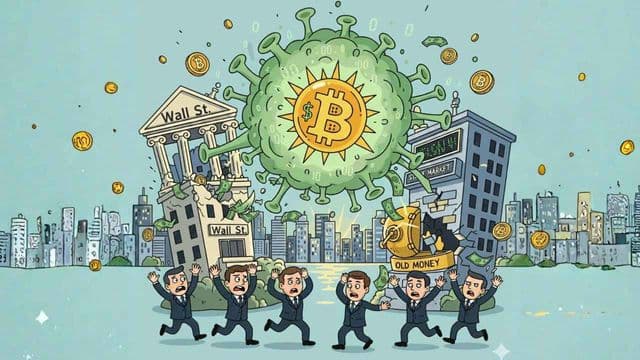Latest news in United States.
Grafa
Breaking News
Astrana Health sales surge 56% in 2025 as accounting delay clouds record results
Astrana Health (NASDAQ:ASTH) delivered a year of explosive scale in 2025, according to financial results released Monday, with total revenue reaching $3.18 billion.
Tech
AAON misses profit estimates as data center costs weigh on expansion
AAON (NASDAQ:AAON) reported fourth-quarter net income of $32 million on Monday, falling short of Wall Street expectations as the company absorbed significant costs related to its rapid capacity expansion.
FDA grants priority review to Takeda's first-in-class blood disorder treatment
Takeda (NYSE:TAK) and Protagonist Therapeutics (NASDAQ:PTGX) secured a major regulatory milestone on Monday as the U.S. Food and Drug Administration (FDA) granted Priority Review to rusfertide, an investigational treatment for polycythemia vera (PV).
Insights
What’s behind the panic-buying of gold?
In times of uncertainty, we often look for something solid to hold onto. Lately, it seems the world’s investors have decided that “something solid” is, quite literally, gold.
The metal’s soaring price is more than just a market trend; it's a global barometer of anxiety.
When faith in currencies, governments, and traditional financial systems begins to waver, we see a familiar flight to the perceived safety of this timeless asset.
Surprise! Lithium gets a recharge
Well, pull out the party hats and dust off the stock tickers.
Lithium, the commodity that investors and analysts had all but left for dead in the great market purge of 2023-2024, is back.
Billionaire bears take a swipe at Tesla
The stock market has long treated Tesla (NASDAQ:TSLA) less as a traditional automaker and more as a futuristic technology cult, with its valuation soaring on the gravitational pull of its CEO, Elon Musk.
This persistent "Musk Premium" has burned countless short-sellers.
Can Bitcoin bring down the global financial system?
Bitcoin has vaporised more than US$800 billion in its latest crash and sucked US$1 trillion out of the broader crypto market.
With nearly US$2 trillion in market value and rising allocations from Wall Street firms, ETFs, pension funds, and insurers, Bitcoin is increasingly woven into traditional finance.
Economy
Economy
U.S. Customs to halt invalidated tariffs as Trump pivots to new 15% global levy
U.S. Customs and Border Protection (CBP) will officially stop collecting billions in trade duties at 12:01 a.m. EST on Tuesday, following a landmark Supreme Court ruling that declared President Donald Trump’s use of emergency powers to levy tariffs illegal.
Economy
SCOTUS dismantles Trump’s emergency tariffs in major rebuke
The U.S. Supreme Court delivered a historic blow to President Donald Trump’s economic agenda Friday, ruling 6-3 that the administration overstepped its constitutional authority by using a national emergency statute to impose sweeping global tariffs.
Economy
US jobs beat lands, but the real shock is underneath
The January US jobs report surprised to the upside, adding 130,000 roles as unemployment dipped to 4.3% and wages stayed contained.
Washington dodges shutdown, but the clock is already ticking again
Washington has pulled itself back from the brink, passing a $1.2 trillion stop-gap deal that reopened most of the US government after days of disruption.





-640x360.jpg&w=1200&q=75)
-640x360.jpg&w=1200&q=75)













